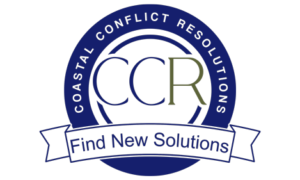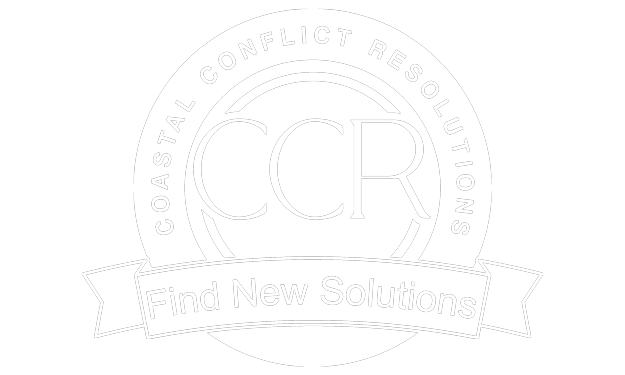Workplace conflicts are a common challenge in every organization, ranging from simple disagreements between colleagues to more complex disputes over workplace policies, team dynamics, or even discrimination claims. When left unresolved, these issues can escalate quickly, creating a toxic work environment that affects employee morale, productivity, and even the reputation of the business. This is where mediation comes in as an invaluable tool for resolving workplace disputes.
Mediation offers a structured process where a neutral third party helps resolve conflicts, offering a solution that works for all parties involved. A workplace mediator is tasked with facilitating communication between conflicting parties, guiding them toward a resolution without resorting to litigation or other formal actions. The role of a mediator in the workplace is essential in fostering a positive and productive work environment.
 What is Workplace Mediation?
What is Workplace Mediation?
Workplace mediation is a voluntary, confidential process where a neutral mediator assists employees or teams in resolving disputes. Unlike traditional approaches, which may involve formal grievances, disciplinary action, or litigation, mediation emphasizes cooperative problem-solving. Mediators are impartial facilitators who help both sides of a dispute communicate openly, understand each other’s viewpoints, and find a mutually agreeable solution.
The mediator’s goal is not to decide who is “right” or “wrong,” but to facilitate an understanding of each party’s concerns and help them work together to reach a solution that meets the needs of both sides. In doing so, mediation promotes a healthier work environment, reduces stress, and enhances overall productivity.
Key Responsibilities of a Workplace Mediator
A mediator in the workplace plays a vital role in resolving conflicts and maintaining a harmonious work environment. Below are the key responsibilities of a workplace mediator:
1. Creating a Safe and Neutral Environment
One of the mediator’s first responsibilities is to ensure that the mediation process remains neutral and unbiased. The mediator must establish a safe, confidential environment where all parties feel comfortable expressing their concerns without fear of judgment or retaliation. This involves setting clear guidelines for respectful communication and explaining the mediation process to all involved parties.
By fostering an environment of trust and openness, the mediator ensures that all participants are willing to engage honestly, making it more likely that the dispute will be resolved in a positive and cooperative manner.
2. Facilitating Communication
Communication is at the heart of conflict resolution. Many workplace conflicts arise because parties have trouble communicating effectively or understanding each other’s perspectives. Mediators help facilitate communication by ensuring that everyone has an opportunity to speak and be heard.
The mediator encourages active listening, where each party listens carefully to the other’s concerns before responding. This process helps break down barriers and allows both parties to feel understood. The mediator can also reframe statements when necessary, helping clarify misunderstandings and ensuring that the conversation stays productive.
3. Identifying the Root Cause of the Conflict
Sometimes workplace disputes are the result of miscommunication, but other times the issue may run deeper, stemming from unmet needs, workplace policies, or personal differences. A mediator is responsible for helping the parties identify the root cause of the conflict. This requires skillful questioning and active listening.
By digging beneath the surface and uncovering the true sources of the conflict, the mediator ensures that the resolution addresses the underlying issues rather than just the symptoms. This approach helps create long-term solutions, preventing similar disputes from arising in the future.
4. Guiding the Discussion Toward a Resolution
Once the mediator has facilitated open communication and clarified the underlying issues, the next responsibility is to guide the discussion toward a resolution. Mediators are trained to offer suggestions, encourage compromise, and brainstorm potential solutions that work for everyone involved.
The mediator’s job is not to impose a solution but to provide a framework for dialogue that enables the parties to find common ground. The mediator may also help reframe the issues in a way that highlights areas of agreement, encouraging a cooperative rather than adversarial approach.
5. Maintaining Confidentiality
Confidentiality is a cornerstone of workplace mediation. Mediators are responsible for ensuring that everything discussed during the mediation process remains private and cannot be used against the parties in future proceedings. This confidentiality allows the participants to feel more comfortable speaking openly and sharing their concerns without fear of judgment or reprisal.
The mediator must also ensure that any agreements made during the mediation are documented and kept confidential, with only the relevant parties being informed of the resolution.
6. Helping the Parties Reach an Agreement
After the parties have discussed their issues and explored potential solutions, the mediator’s next responsibility is to help them reach a mutually agreeable resolution. The mediator may suggest terms for a settlement or help the parties create their own agreement. This can include adjustments to workplace policies, specific actions to address behavior or communication issues, or other forms of compromise that benefit both sides.
The goal of mediation is to create a win-win solution where both parties feel their needs have been met, and the conflict is resolved in a way that promotes a positive work environment.
7. Following Up to Ensure Compliance
Once an agreement has been reached, the mediator may follow up with the parties to ensure that the resolution is being implemented effectively. This follow-up can help address any lingering concerns or prevent the conflict from resurfacing. Mediators may also recommend periodic check-ins to ensure that the workplace remains harmonious and that the agreed-upon solutions are effective.
Key Aspects of Workplace Mediation in Myrtle Beach
When considering workplace mediation in Myrtle Beach, it’s important to understand the unique aspects of the process and how it applies specifically to local businesses. Coastal Conflict Resolutions offers professional mediation services designed to help businesses navigate workplace issues effectively.
1. Voluntary and Confidential Process
Workplace mediation is typically a voluntary process. While employers may encourage or recommend mediation, employees are not forced to participate. This voluntary nature allows participants to approach the process with a willingness to resolve the conflict and work collaboratively. Additionally, the confidentiality of the mediation ensures that participants can speak freely without concerns about their statements being used against them in other contexts.
2. Tailored to Each Workplace
Every workplace is unique, and the mediator will tailor the mediation process to suit the specific dynamics and culture of the organization. Whether the conflict involves interpersonal issues, disagreements over company policies, or disputes between management and staff, the mediator will customize their approach to ensure that the process is relevant and effective for the individuals involved.
Coastal Conflict Resolutions understands the local business landscape and is skilled at working with businesses in Myrtle Beach across various industries. Their tailored mediation services address the specific challenges faced by businesses in the area.
3. Fosters a Collaborative Work Environment
One of the primary goals of workplace mediation in Myrtle Beach is to foster a collaborative, respectful work environment. By resolving conflicts efficiently, businesses can improve employee morale, reduce stress, and boost productivity. When employees feel that their concerns are being heard and addressed in a fair and constructive way, they are more likely to engage with their work and collaborate effectively with their colleagues.
4. Cost-Effective and Time-Saving
Mediation is often a more cost-effective and time-saving alternative to formal litigation or other lengthy conflict resolution processes. In many cases, mediation can resolve disputes in just one or two sessions, while formal litigation or arbitration can take months, resulting in significant costs for both employees and employers. Additionally, by resolving conflicts in-house through mediation, companies avoid potential damage to their reputation or employee relations.
5. Prevents Future Issues
Effective workplace mediation not only resolves the immediate conflict but also helps prevent future issues from arising. By addressing communication breakdowns, fostering a better understanding of each other’s perspectives, and creating agreements that benefit all parties, mediation promotes a culture of collaboration and respect. This proactive approach helps prevent minor disagreements from escalating into larger issues that could affect productivity and employee well-being.
Why Choose Coastal Conflict Resolutions for Workplace Mediation in Myrtle Beach?
Coastal Conflict Resolutions is a trusted mediator in Myrtle Beach, specializing in workplace conflict resolution. Their experienced mediators are skilled in helping businesses of all sizes resolve disputes quickly, confidentially, and in a manner that preserves relationships and improves the overall work environment.
By choosing Coastal Conflict Resolutions, businesses gain access to:
- Experienced mediators with in-depth knowledge of workplace dynamics
- A confidential and neutral mediation process
- Tailored solutions that address the unique needs of your organization
- A cost-effective way to resolve conflicts without the need for litigation
- A commitment to fostering a respectful and collaborative work environment
To begin the mediation process or learn more about how Coastal Conflict Resolutions can assist your organization, call (843) 273-0029 today. Let us help you create a positive, productive work environment for all of your employees.




